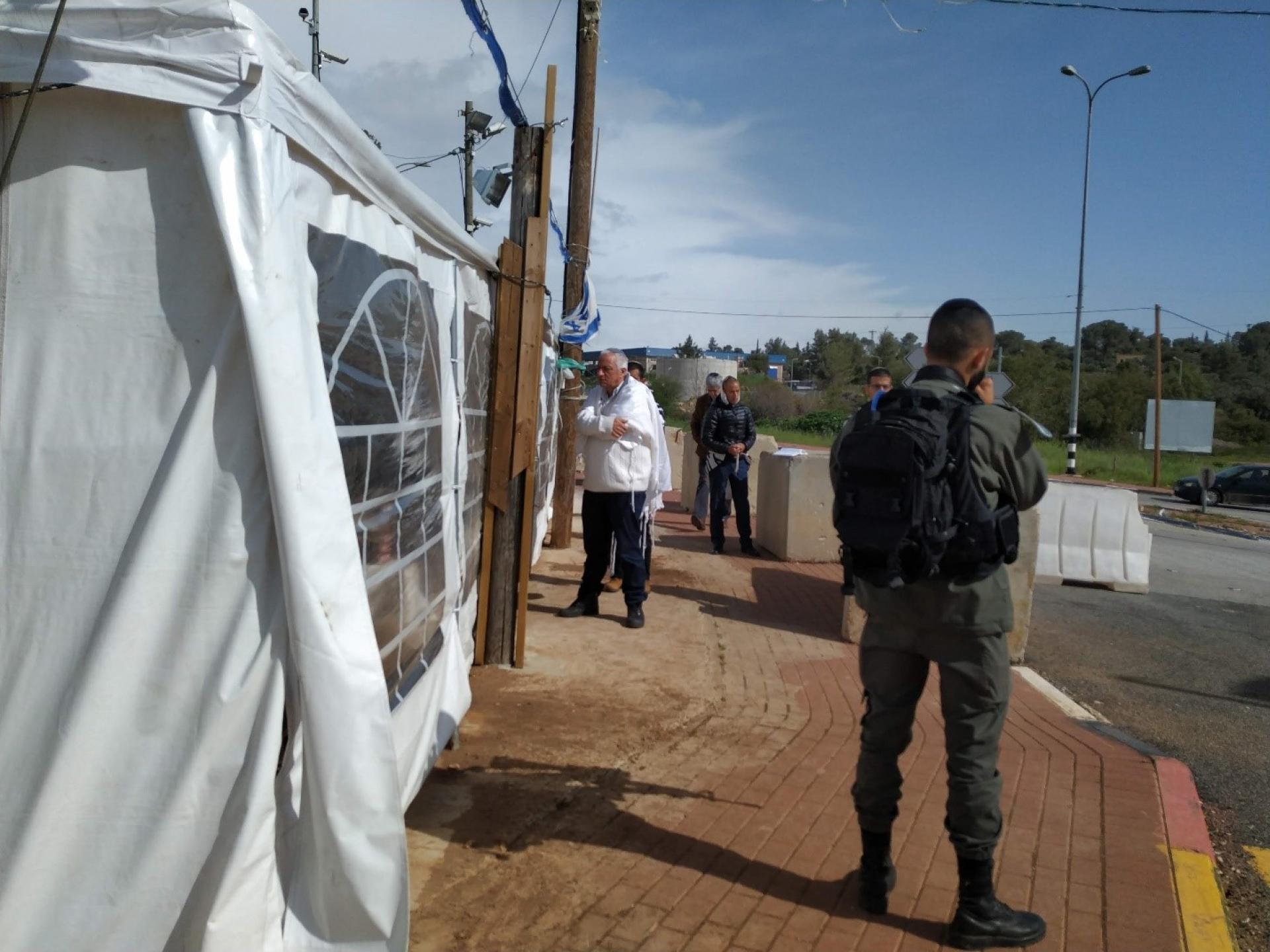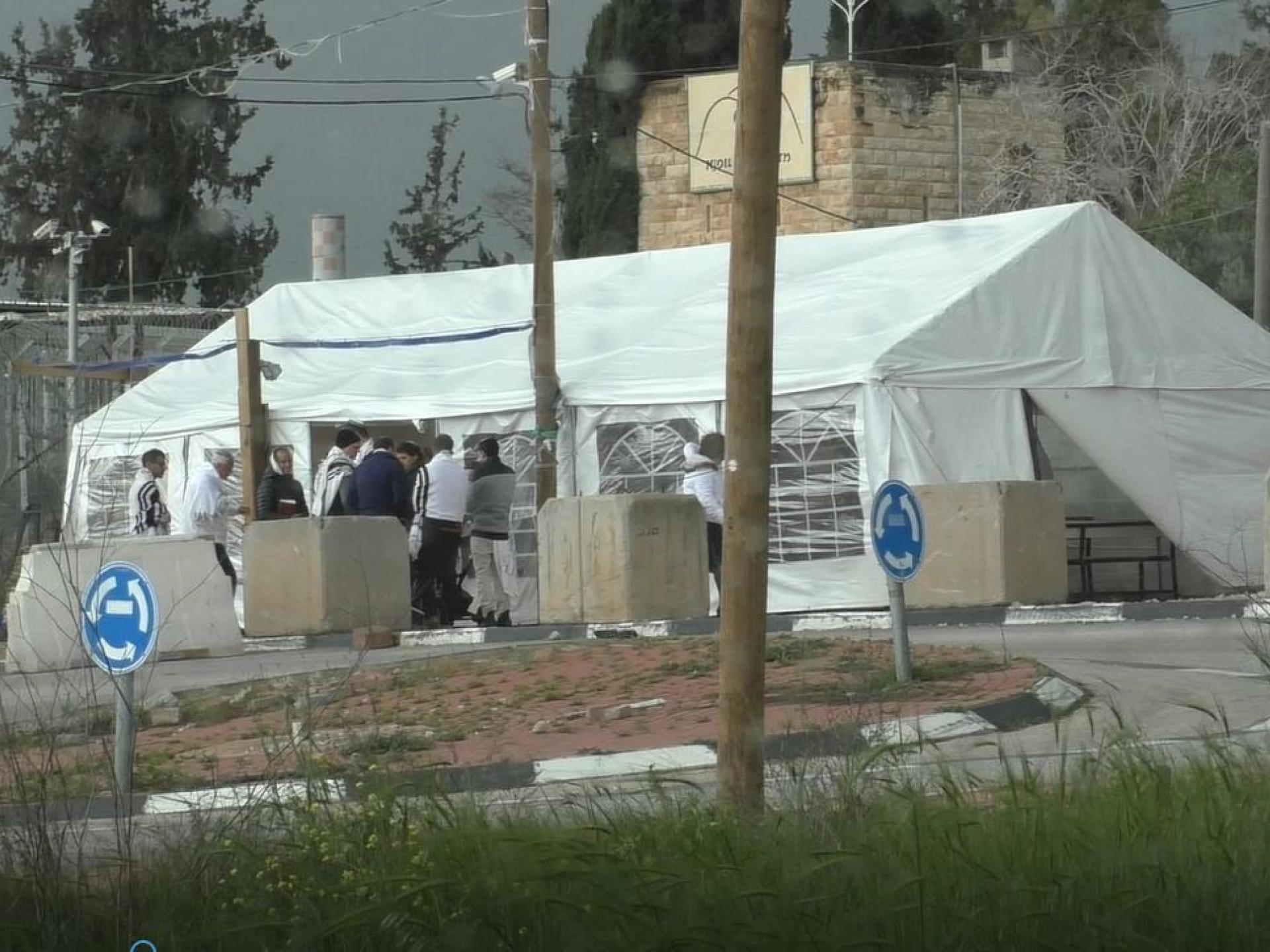Halameesh Junction: suddenly a tent appears, an in it – a provisional synagogue


Saturday morning, between 9 and 9:30 a.m. It’s cloudy, raining. Numerous soldiers on both sides of the entrance to road 450 stand guard for the settler-colonists of Halameesh who gather in a white tent containing a provisional synagogue. The tent is erected right by the roadside. Settler-colonists from the outpost cross the road and enter the tent. Inside are tables, chairs and all the equipment necessary for holding prayers.
A day earlier we received an urgent phone call from Attorney Neta Sheizaf Amar, who petitioned in the past against closing off road 450 that serves as a main thoroughfare for the 20,000 inhabitants of Palestinian Beitilu traveling to the northern West Bank. The road was closed by Israel after the murder that took place in settler-colony Halameesh and the erection of a settler-colonist outpost on the other side of the road. She asked for a photograph and updated testimony, including a deposition to present at court.
The obvious purpose of the settler-colonists here is to expand and turn this mandate road into an internal road inside their settler-colony. This time their trick was to hold Sabbath prayers on the road!
In the petition against closing off the road, which was accepted, one of the judges is reported to have said: “Prayers are held inside a synagogue, not on a road”. The settler-colonists listened, internalized this, and erected a synagogue inside a light structure on the roadside. And here they are, praying inside a “legal” structure, with military guards no less. But the structure has been erected without permit, says Attorney Amar. And instead of removing it, as is routinely done with permit-less Palestinian structures, the court used a law of 1938 that regards only hampering traffic on the road, and not a structure erected without permit.
Since we reached the area long before the worshippers did, we visited En Zarka wadi that holds farmlands of Beitilu villagers as well as residences built after 1948 by Palestinians who had been expelled during the 1948 Nakba. At the entrance to the wadi we heard from passengers that last Thursday two checkpoints were put up there for 5 hours, one at the entrance to the wadi from road 450, and the other right alongside Palestinian residences.
